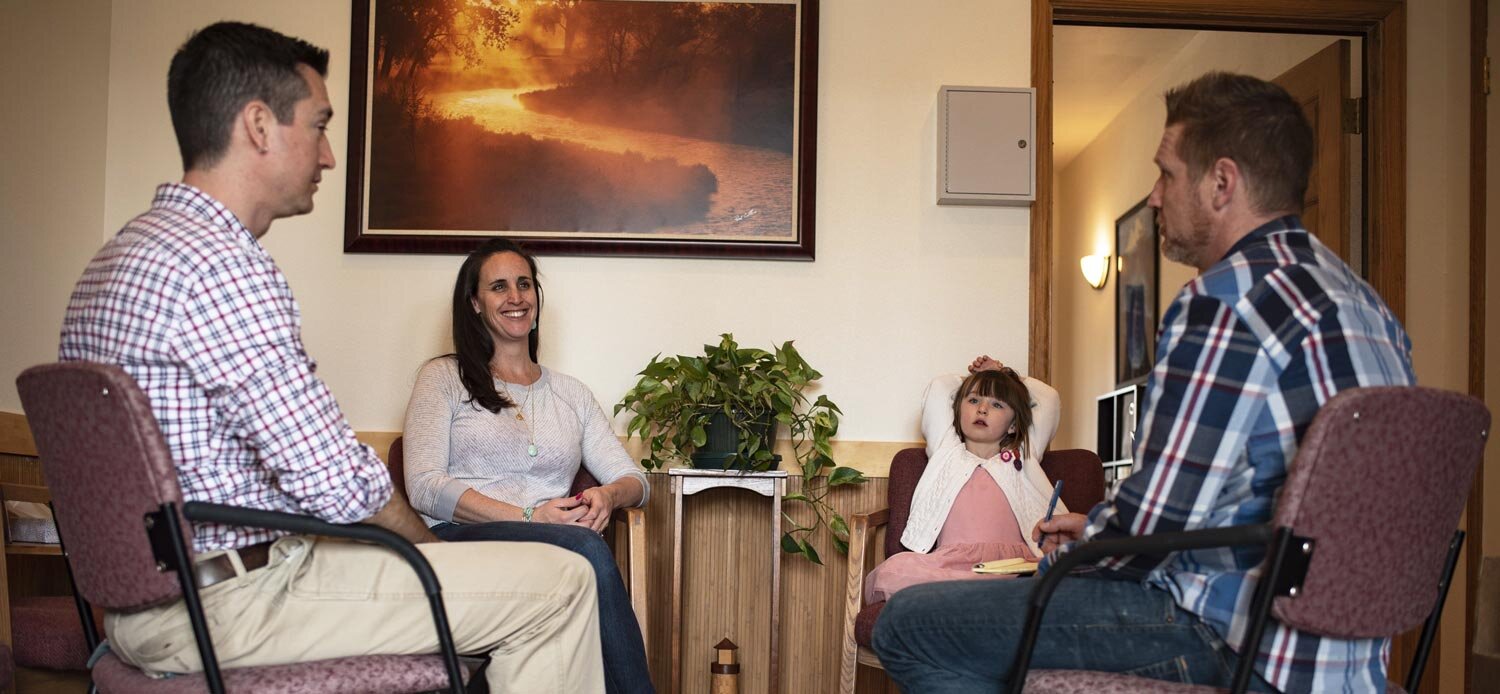
Our strategy combines
caregiver training with
1-on-1 and group therapy.
Behavior Therapy and ABA
There are a number of biological and environmental conditions that can cause children to have substantial problems succeeding in their everyday lives and living up to their potential. Some of these are:
Autism, ADHD, Adoption, Traumatic Stress, Learning Disabilities, Intellectual Disability, Traumatic Brain Injury, Fetal Exposure to Alcohol/Toxins, High Conflict Divorce
The best behavior therapy combines caregiver training with 1:1 and group therapy to help a child develop skills that they need to succeed at school, home, in relationships, at work, and to create the lives they and their families want for them.

Making The Biggest Difference When The Brain Is Developing The Fastest
Early Intervention
Evidence and conventional wisdom tells us that our experiences in the first few years of life will have a disproportionate impact on who we will ultimately become. Delays or obstacles in our developing social, cognitive, language, gross/fine motor, and coping skills can result in impairments that can last a lifetime.
A skilled Behavior Analyst (BCBA- Board Certified Behavior Analyst) will assess your child's current levels of functioning in all of the areas that matter most. Next, the BCBA will develop individualized teaching protocols to help your child improve their skills and develop the ability to self-regulate. As the most important aspect of the child's environment, caregiver's are involved in the teaching in the most integral and pragmatic of ways.
For decades, research clearly points to Applied Behavior Analysis (ABA) as being one of the most effective treatments for Autism Spectrum Disorder (click here to read about why the American Academy of Pediatrics recommends it and here for why the CDC does) . The CDC (Centers for Disease Control and Prevention) indicates that there is little research support for the use of medications for ADHD in preschoolers and that Parent Behavioral Training was substantially superior (click here go to the CDC website for ADHD preschooler treatment guidelines).
Consistently, children at risk but too young to be diagnosed with ASD, ADHD, or another neurodevelopmental disorders show improvements in executive functioning, communication, social skills, and self-control with behavior therapy.

Parent Training and Behavior Therapy For Attachment Disordered Children
For children with behavior problems stemming from adoption and/or early trauma, typical behavior therapy may not be appropriate. In fact, there is some risk that strict adherence to a prescribed behavioral intervention could potentially harm the child.
In order to help resolve problems stemming from insecure attachment and trauma, the clinician must be able to help the caregivers understand that the child's behavior is communicating on behalf of the child's dysregulated physiology and that oftentimes that behavior is essentially a "default mode" skill left over from infancy. Healing comes in part as a result of creating an environment that will foster increasingly mature forms of communication with the caregiver. The result is happier, more affectionate, more compliant children and a stronger bond shared between parent and child.
In addition to classical behavior therapy and training, Lighthouse clinicians are trained to teach Heart Rate Variability (HRV) exercises that can start the process of restoring the autonomic nervous system (which is usually dysregulated in these children) to normal functioning. This enhances heir ability to regulate strong emotions and more easily transition between highly active states to calm ones.

Successful emotion and mood management is the foundation of self control
Emotion Regulation Training
For many children, their inability to manage their own behavior stems from a dysregulated autonomic nervous system. Some of these children have a hair-trigger sympathetic "fight-or-flight" response and get angry, frustrated, or frightened too easily to control their behavior in more stressful circumstances. Some take so long to calm down after an upset, that they have trouble getting back to task and their whole day can be spoiled. These children are frequently prescribed medications like Clonidine, Guanfacine/Tenex/Intuniv (alpha-2 agonists), Risperdal/Risperidone and Abilify (antipsychotics), and even sedatives such as Atavan and Lorazapam (benzodiazapines). Birth complications, prenatal stress or toxic exposure (including drugs and alcohol), trauma, illness/infections, and other environmental factors can damage the autonomic nervous system while it is still developing or disturb it so greatly that it is not able to form its essential regulatory role in the body.
Of particular importance is the regulation of arousal. Many children are unable to calm their bodies to the extent that they can sit still and complete a task. Others are difficult to arouse to an engaged mind set. For some, the dysregulation leads to severe behavioral outbursts, often putting the health and safety of themselves and the people around them at risk. At Lighthouse, we provide evidence-based training in autonomic regulation, which includes relaxation training and Heart Rate Variability (HRV) training. We have seen scores of young children learn strategies that not only improved their behavior in all areas of their lives, but also enabled their physicians to lower or even eliminate psychotropic medications.

We never to allow the severity of a behavior to limit your access to effective treatment.
Problematic or Dangerous Behaviors
Many types of disabilities bring with them increased likelihood of maladaptive behaviors. These often arise as a result of deficits in the areas of communication, emotion regulation, or sensory processing. These behaviors can restrict a person's access to locations and events in the community, leading to a decreased quality of life. A Behavior Analyst is an expert at identifying what is causing the behavior to occur and then how to address it.
Lighthouse strongly believes that children and adults with high magnitude behavior problems are rarely given the help they need to live normal lives, and often are placed in restrictive institutions because the community lacks the will and the resources. Lighthouse is determined to refuse to allow the severity of a behavior to limit the clients access to effective treatment.
